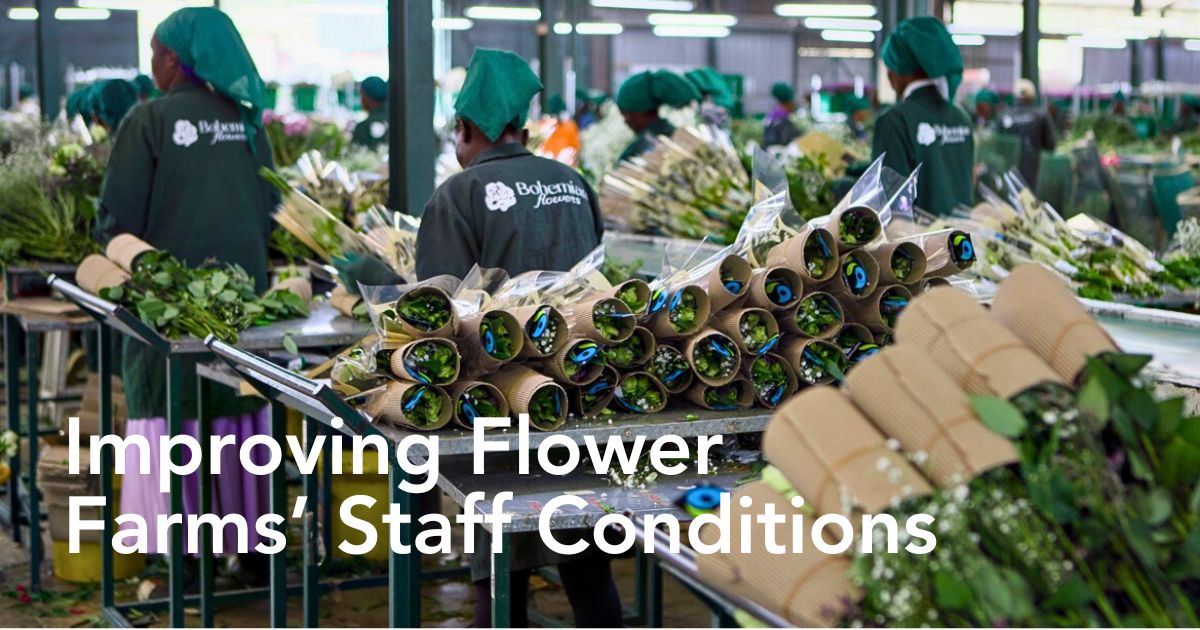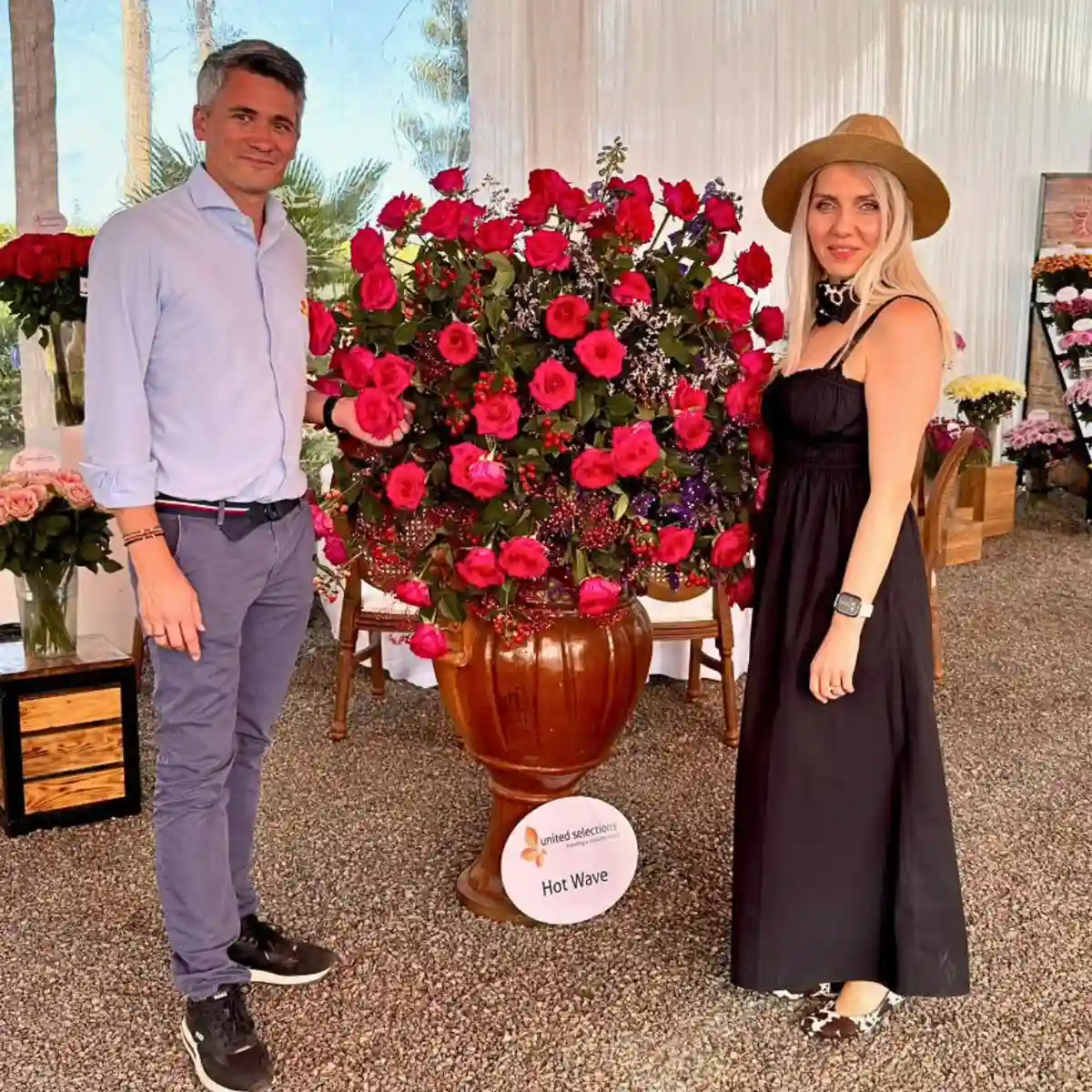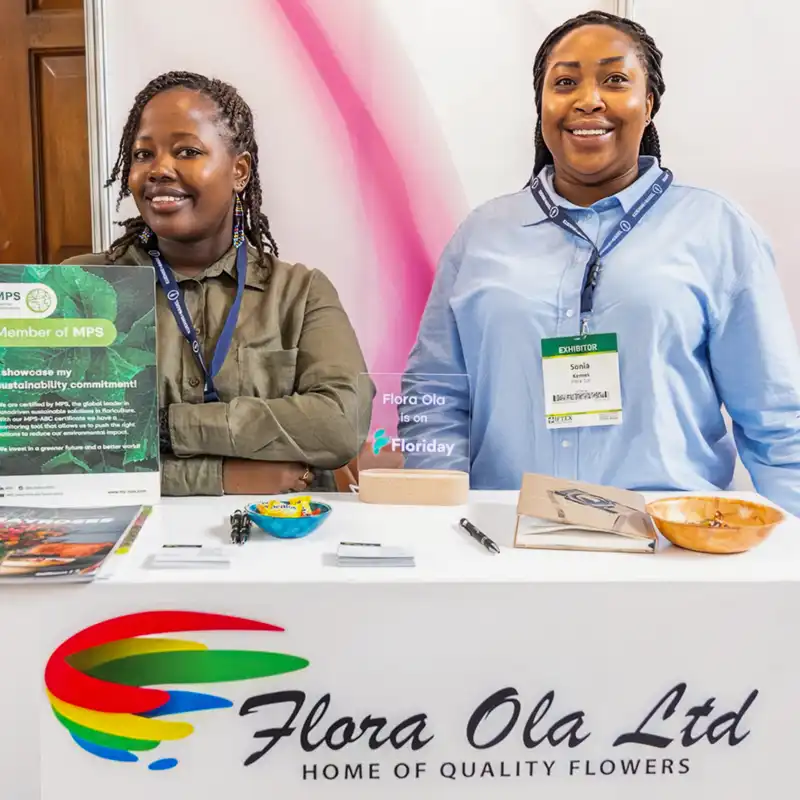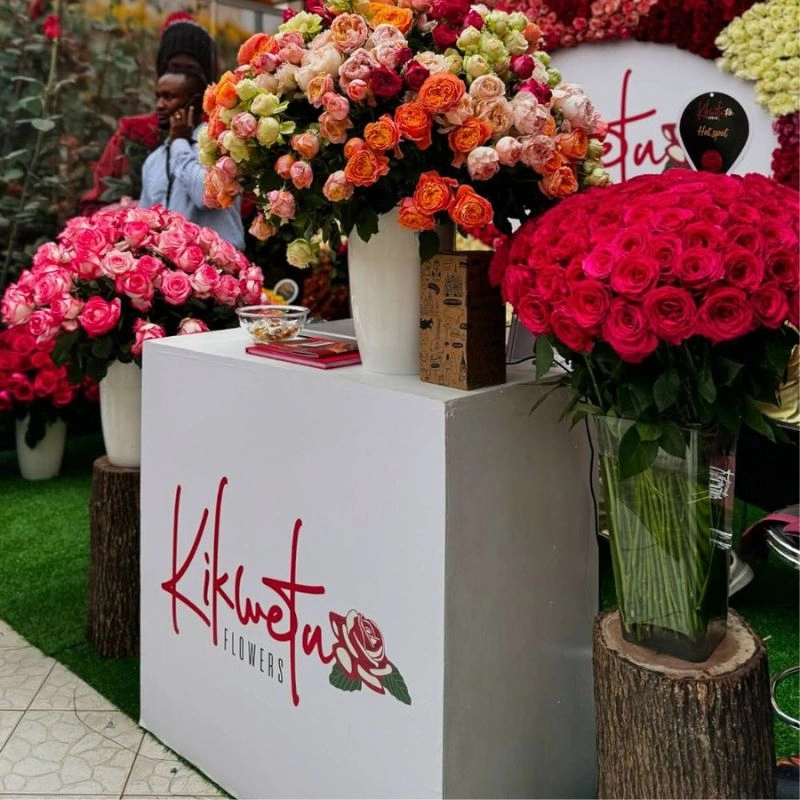We land safely in Nairobi. An easy taxi ride to the city center is followed by chaos as we search for a local minibus to take us to the town of Naivasha. We push our way through the local youth onto Ronald Ngala Street and find a free shuttle bus. Once the minibus is full, we set off for the area with the most flower farms in Kenya. I have been focused on working conditions around the world for over 15 years and have made several trips to make production reports and documentaries.
I have seen how Fairtrade works brilliantly in the case of its primary commodity–coffee–in Latin America. In the case of coffee, however, independent farmers, who are essentially small-scale entrepreneurs, are involved in the Fairtrade system through co-operatives. But how can Fairtrade support employees on large flower farms in East Africa? This question runs through my mind the entire way to Lake Naivasha.
The Conditions Here Are Ideal for Flower Growing
It is here at the freshwater Lake Naivasha that roughly 70 % of Kenya’s flower farms are located. The conditions here are ideal for growing: a cooler mountain climate and long sunny days. Plus, cheap labor. It is no wonder that a total of 40 % of cut flowers on the European market come from Kenya. A monthly wage of € 80 is unthinkable by European standards. Let alone working 6 days a week for 8 hours a day. This sum is not enough to cover basic needs, even here in Kenya. According to World Bank data, 46.4 % of people in Kenya are living in extreme poverty, i.e., on less than 3 USD per day.
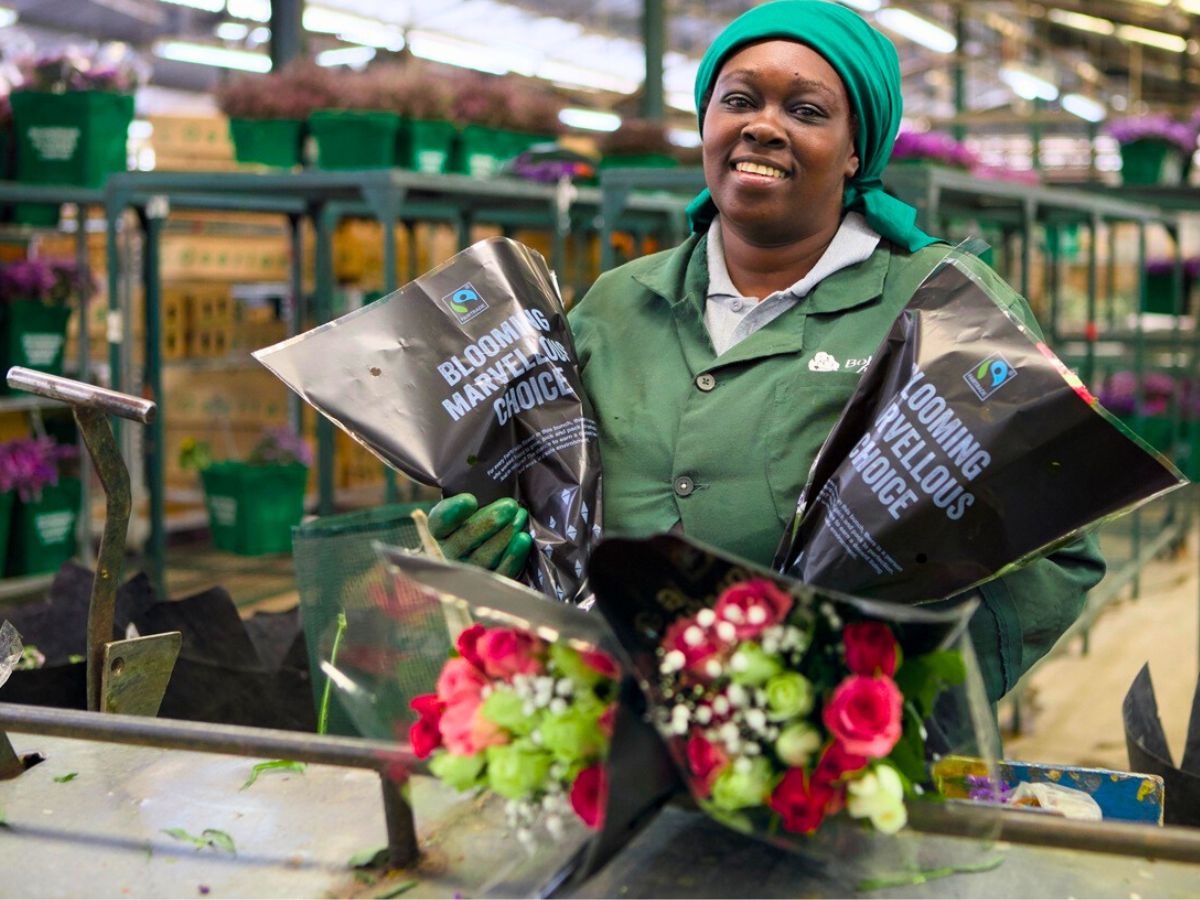
“They can only afford basic food for themselves and their children. It is impossible for them to buy more nutritious food, as if they did, they would not be able to pay their rent, food on other days, school fees, or other expenses,” says Eunice Waweru, who is Executive Director at the Workers Rights Watch. One might think that with low monthly wages, the cost of living must also be lower. But food in Kenya is just as expensive as in Europe. “Compared to what farm workers earn, food prices are too high. A kilo of meat costs € 5, and a liter of good oil comes in at € 6.50, but they can’t afford that, and they have to resort to lower-quality oil. They can’t even afford bread,” says Eunice Waweru.
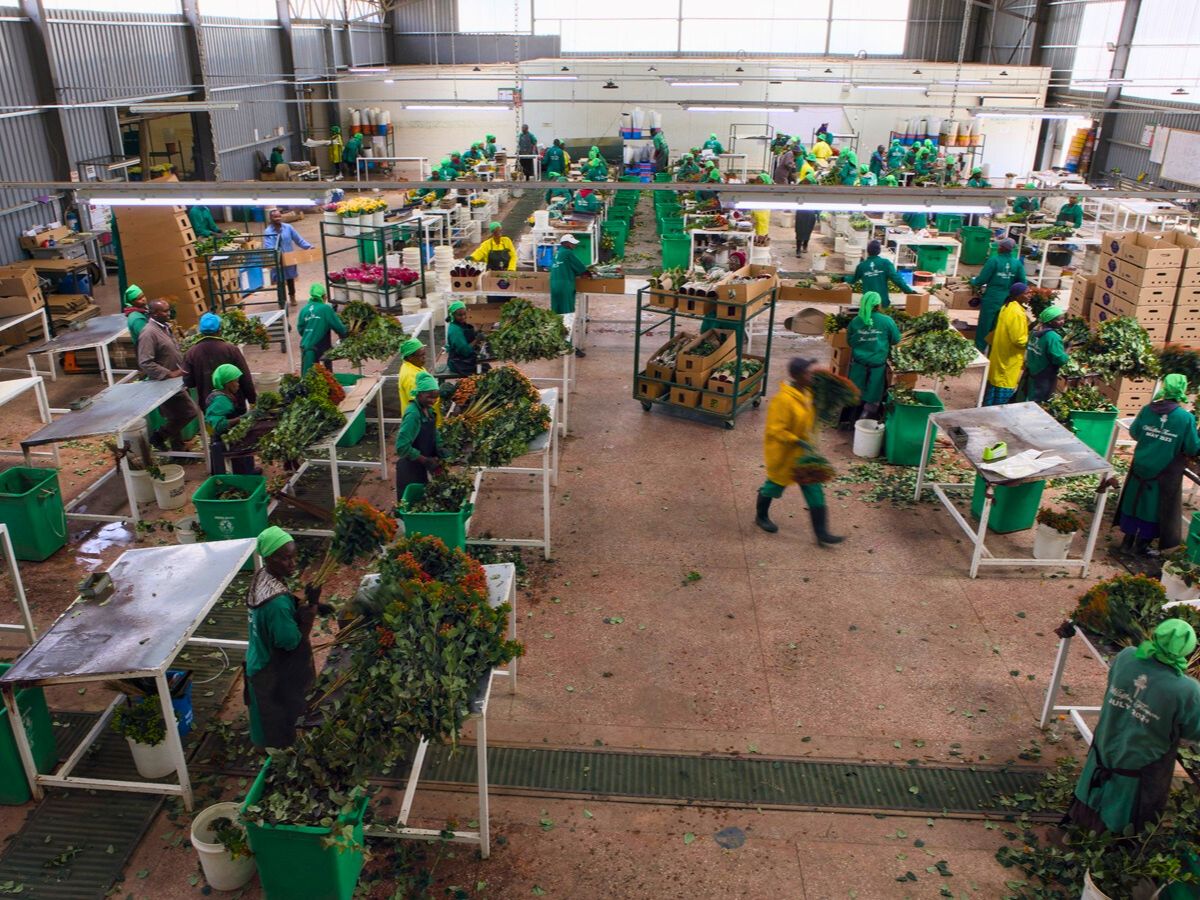
It is difficult for all flower farm employees to live with dignity under these conditions. But this is especially true for women. Mothers are often solely responsible for their children and the household, but at the same time, they have to commute to work to earn a basic living. Unfortunately, nursery schools are not usually available, and they cannot afford to pay someone to look after their children. And when the children grow up, parents face further costs, because only primary schools are free in Kenya; secondary schools charge tuition fees. Families also have to cover the costs of school uniforms, textbooks, and transport. According to UNICEF, only 53 % of all children enroll in secondary school, even though education represents the main opportunity to secure a better future for children.
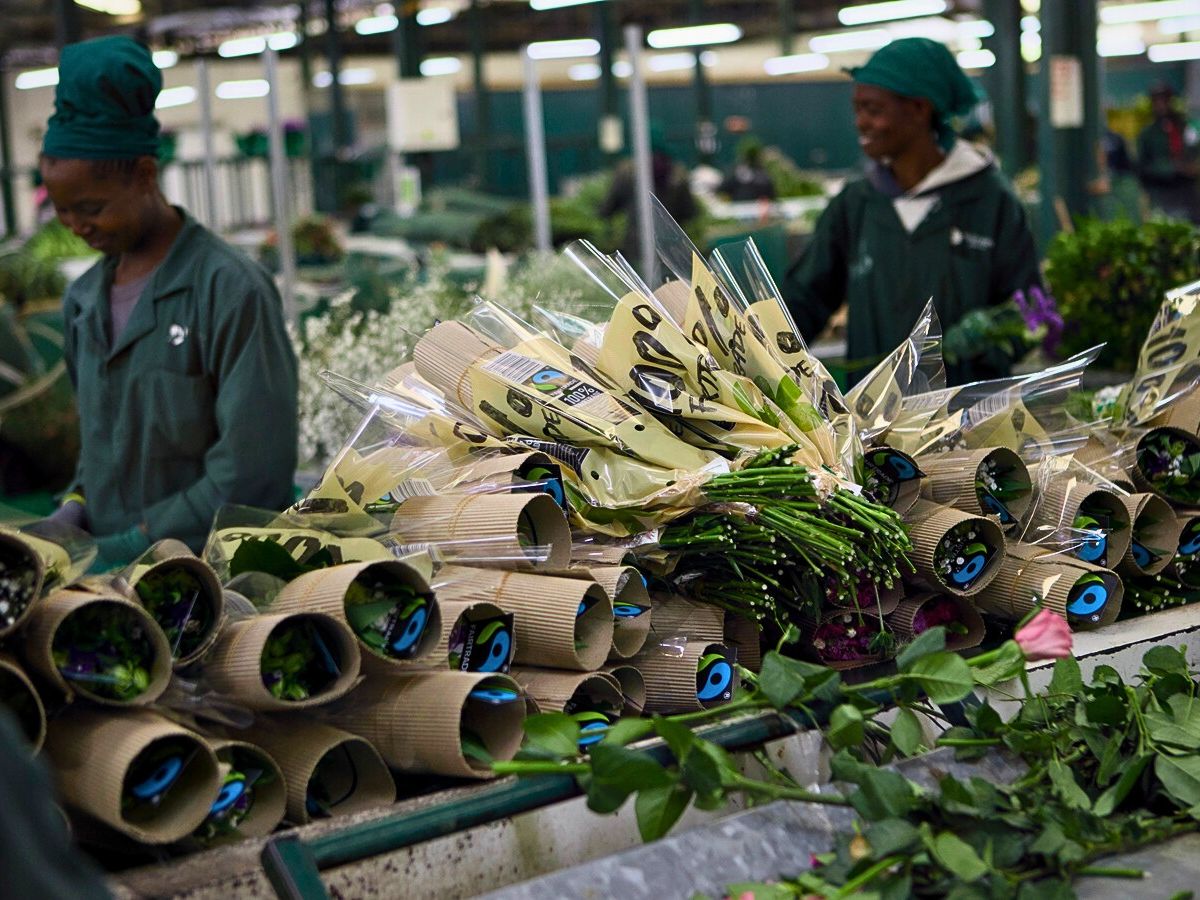
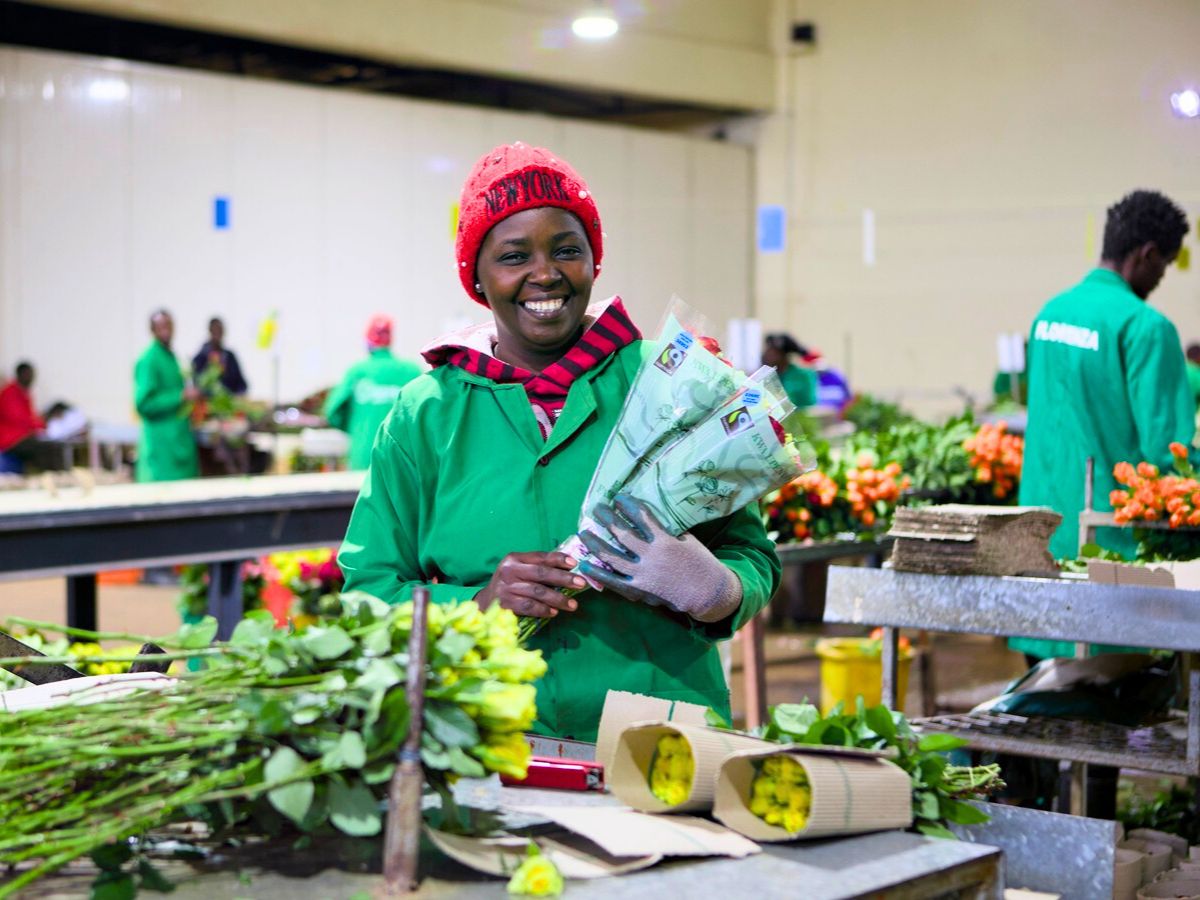
Fairtrade Improves Conditions on Farms
During the week, we visit four flower farms and two local non-governmental non-profit organizations. We interview independent experts on the flower industry, farm management, and employees. We see that when farms join the Fairtrade system, this leads to a big change for local people. “It’s not easy to find work anywhere other than on a flower farm in the vicinity of the city. I am glad for Fairtrade,” says Teresiah Kinyuah. She works in the packing room of Bohemian Flowers, which uses the Fairtrade premium to run a crèche. In the morning before work, Teresiah can take her one-and-a-half-year-old daughter Annette there: “Since the very first day, I have seen that my daughter has been thriving at the crèche. This motivates me; I can be more productive when my child is in good hands.”
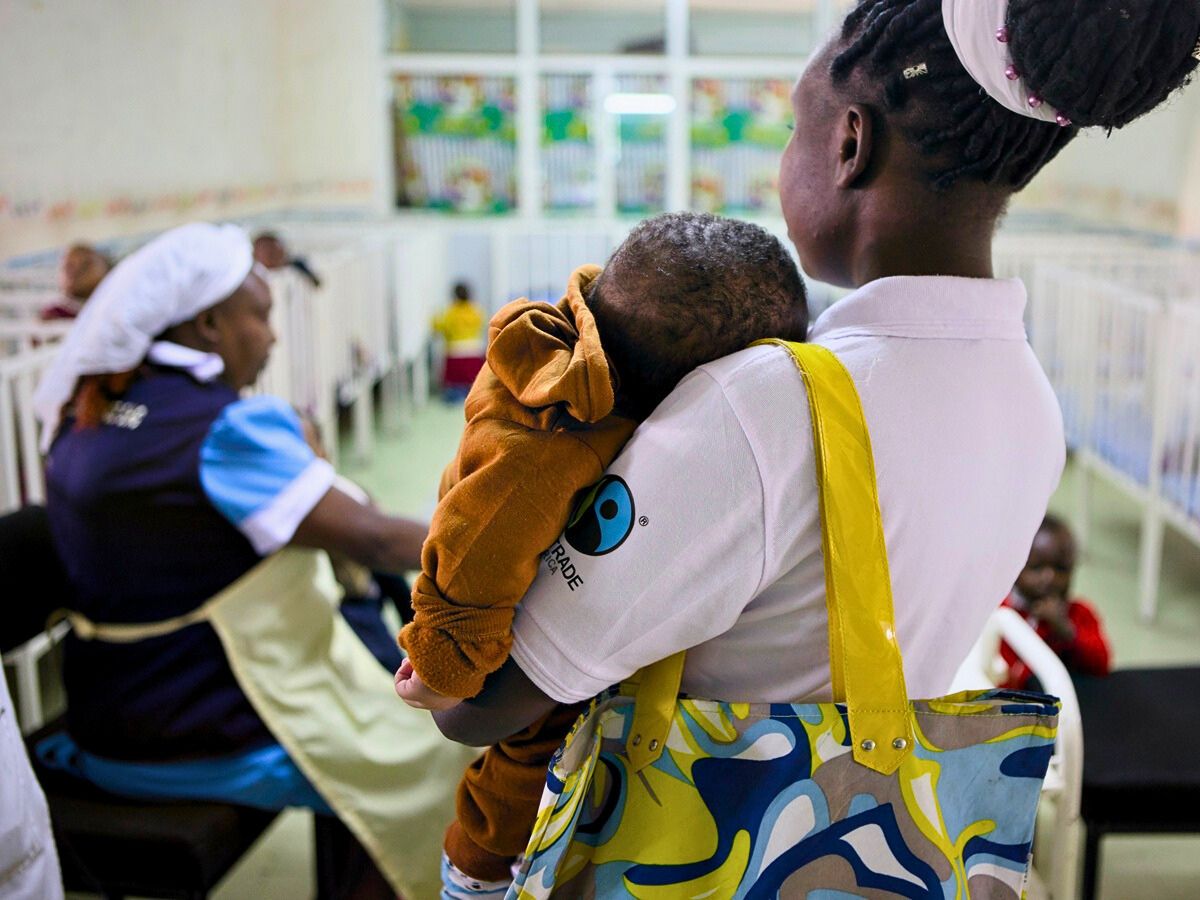
Unlike other commodities in the Fairtrade system, there is no Fairtrade minimum price for flowers. The Fairtrade premium, therefore, plays an important role. “As farm owners, Fairtrade does not bring us financial benefits. We receive the same price for certified and non-certified flowers. However, it is important to us that our employees benefit from our involvement in Fairtrade. For each sale to the Fairtrade system, buyers pay an additional 10% Fairtrade Premium. This improves the lives of our employees,” explains Yogesh Basavarajappa, manager of the Black Tulip farm.
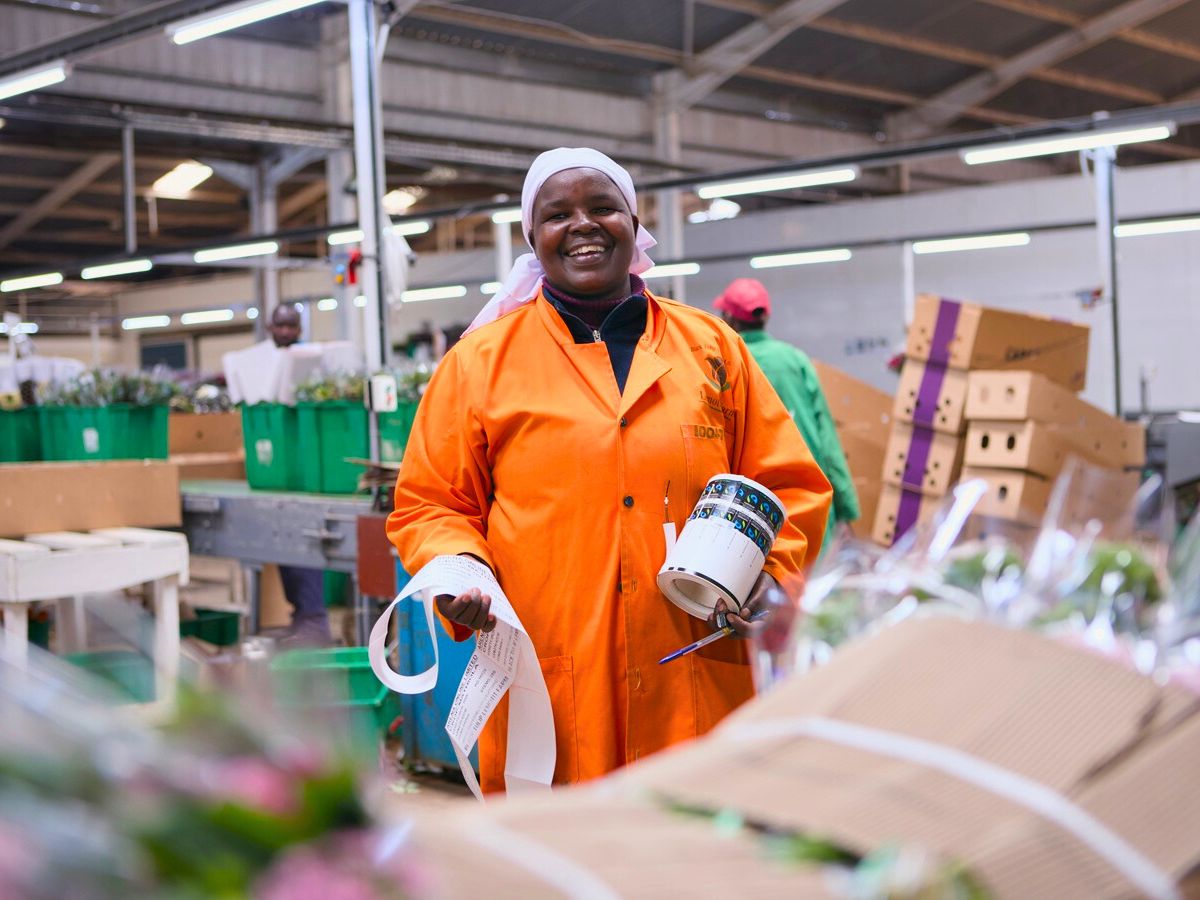
The Fairtrade premium is intended for employees and is the main benefit of working on a Fairtrade farm. Employees decide how to use these bonus funds through their elected representatives on the Fairtrade committee. In 2022, they jointly managed more than € 7.5 million. The money is most often invested in improving housing, paying school fees, running childcare facilities, or paying for school lunches. Christine Topista Nekesa from the Bohemian Flowers farm is happy to take advantage of this: “My child gets free lunches; I don’t have to pay for them: they are covered by the Fairtrade premium. I don’t have to stress at work about whether they will get something.”
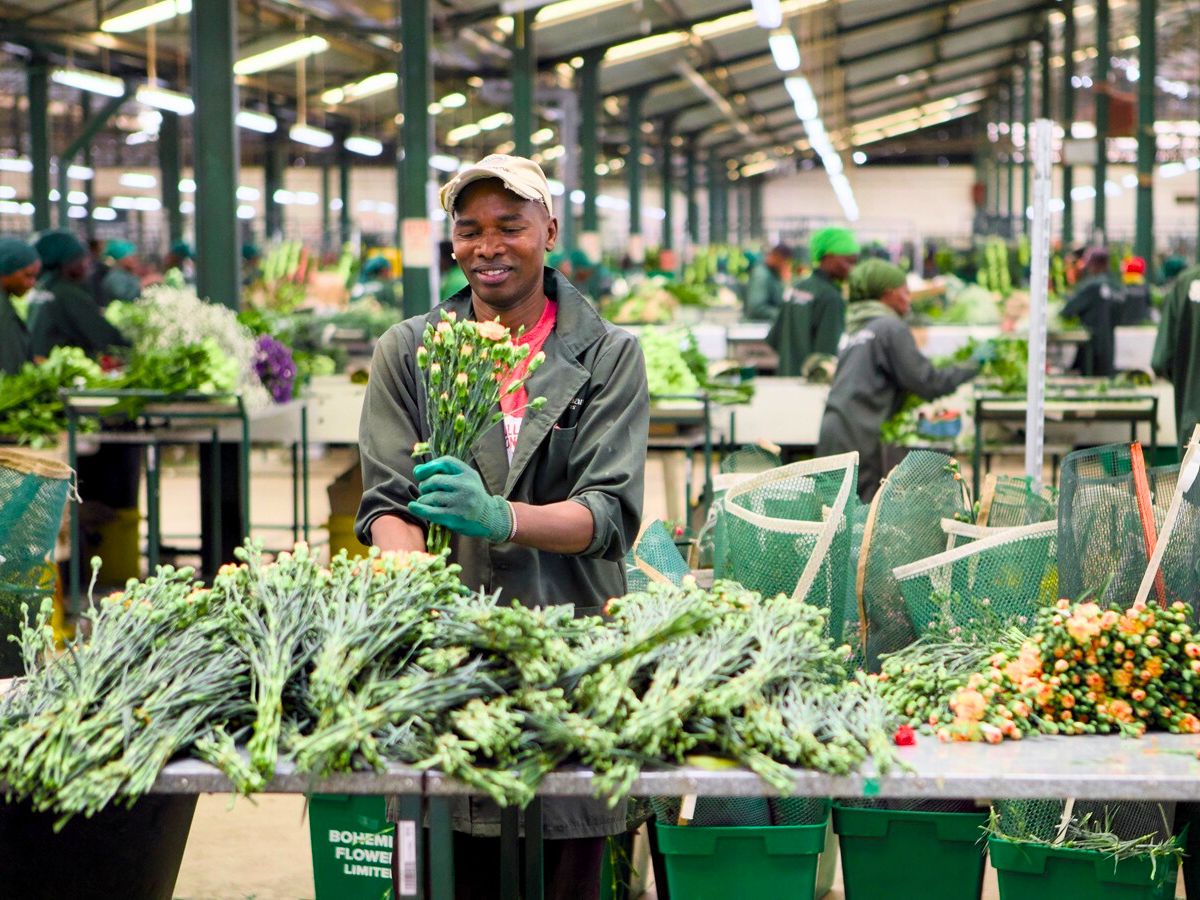
We talk to other people. At Bohemian Flowers, Francis Matiso, who is deaf, is in charge of making bouquets. This Fairtrade farm employs several deaf people and amputees. The Fairtrade Premium is used to adapt their workplace, pay for prostheses, or provide interpreters. Francis really appreciates this: “I work in the packing room, making bouquets. When the foreman comes with an order, I need an interpreter to tell me how many stems should be in the bouquet, which flowers, and what colors: red, purple, or other colors. I’m deaf, but I’m always the best worker on the team.”
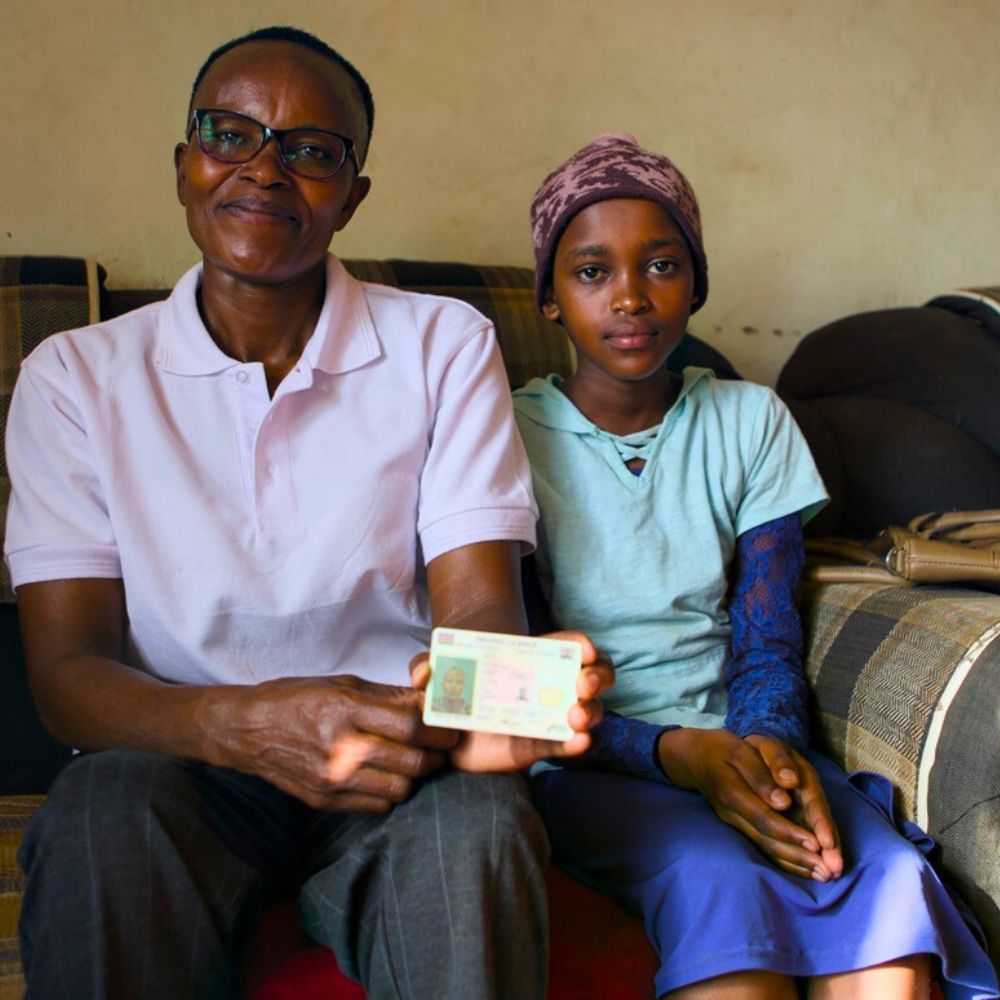
Flower farms use the Fairtrade premium to pay for various skills development training courses for their employees. For example, Florenza Limited pays for its workers to take driving lessons. One of its beneficiaries was Mary Munyiri. Thanks to the training, she can now drive her family to church on Sunday or drive her children to school. She can also drive to the countryside to buy vegetables and earn extra money by selling them in the city.
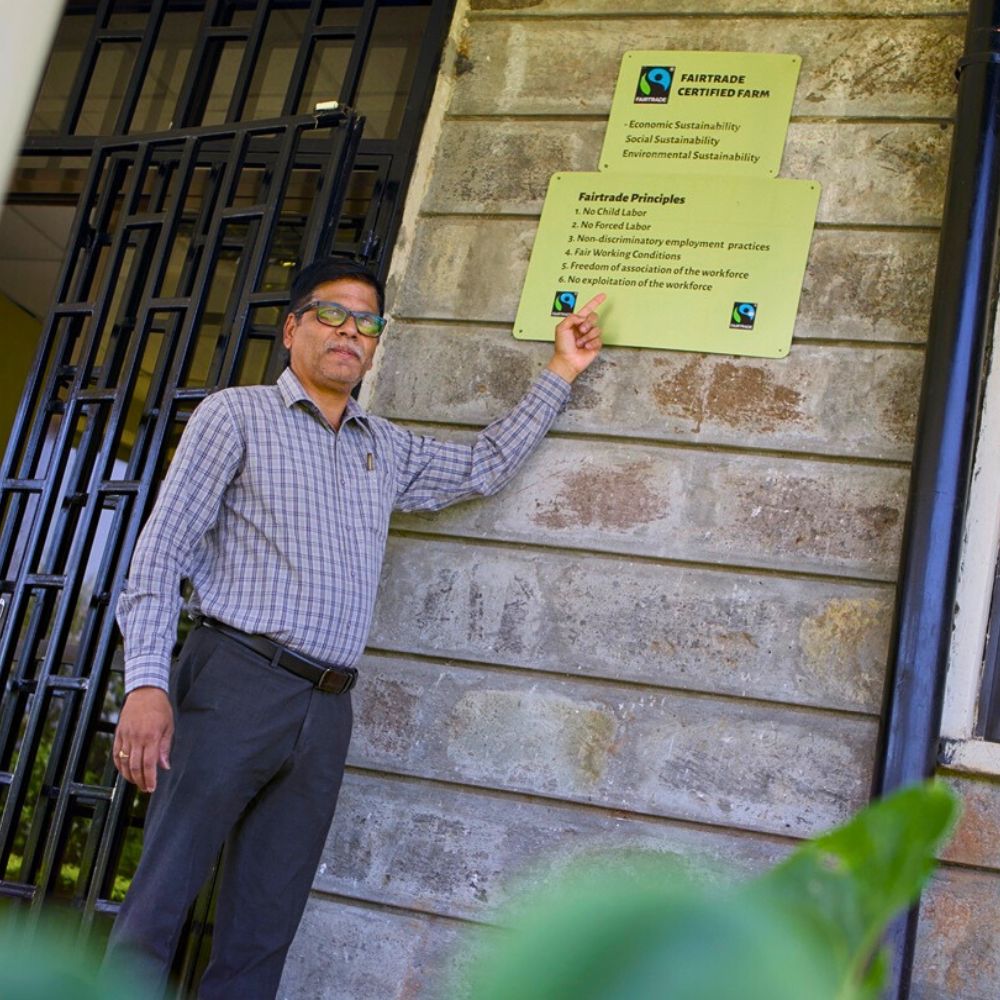
On the return flight, we recap the days spent with the people on the farms. It was clear that while they don’t have an easy life, thanks to projects funded by the Fairtrade Premium, they can better provide for themselves and their children. One way we can contribute to positive change on farms is to buy flowers bearing the FAIRTRADE certification label. These flowers have a lower impact on the surrounding nature and leave a lower carbon footprint than those grown in heated European greenhouses. And above all, by buying them, we are supporting better working conditions for the people on farms and the chance of an education for their children.
Photos by Stanislav Komínek for Fairtrade

